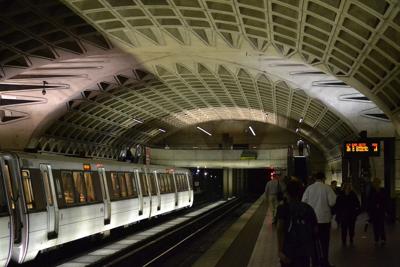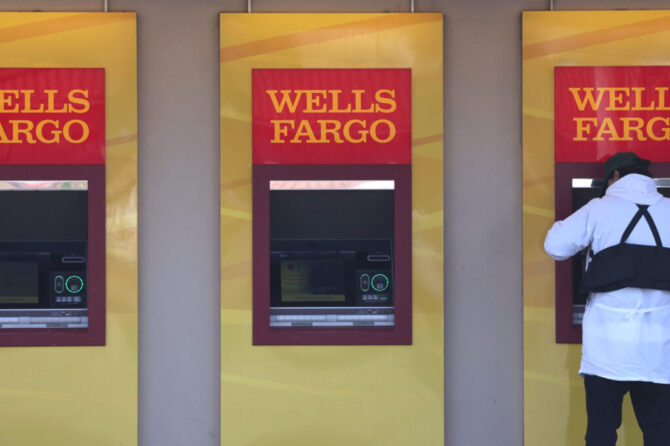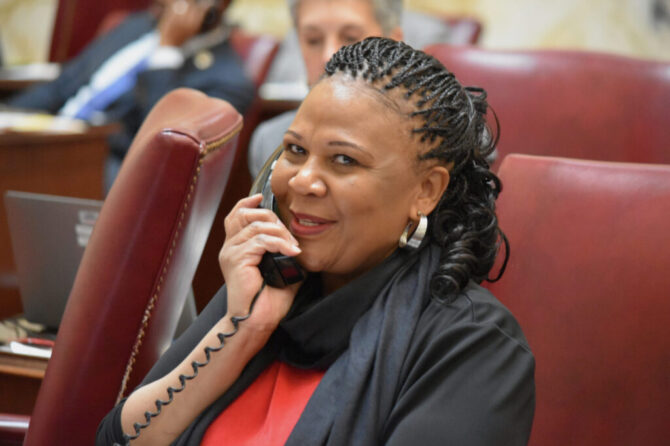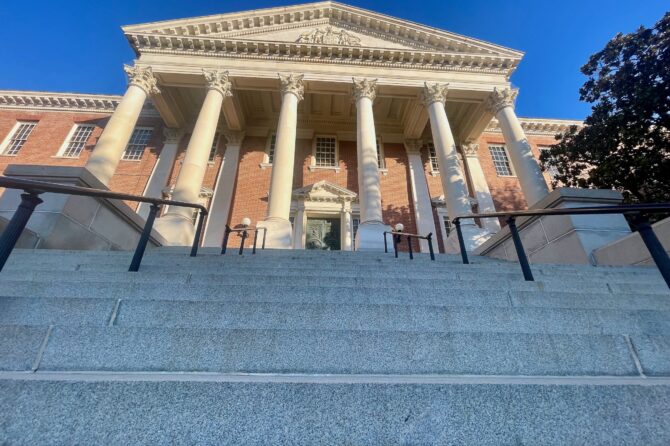WTOP NEWS: Millions of Metro riders could see a system with fewer Metro stations and bus routes, longer wait times, and much higher fares, with a massive reduction in service inside Metro General Manager and CEO Randy Clarke’s proposed budget for the next fiscal year.
Clarke said the budget contains a “a level of cuts that is hard to imagine.”
Clarke said due to lower usage after the pandemic, COVID-19 credits to jurisdictions that use and help fund the system and an increase in inflation, the agency has amassed a $750 million deficit. That amounts to a gap that can’t be filled with just light belt tightening, so drastic measures, including layoffs, would need to be taken, Clarke said.
He said this all comes despite the Metro system seeing an increase in ridership and a decrease in crime.
Avoiding the cuts is possible, according to Clarke, but it would take Maryland, Virginia and D.C. bringing a combined $663 million in additional funding to the table.
A fair fare spike?
Clarke’s budget would increase fares on trains and buses by 20%, which means a regular Metrorail fare could go up as high as $7.20 for a trip.
The changes he said would have “customers paying more for much less service.”
Rail and bus changes
Among the dramatic cuts that would take place on July 1, 2024, would be the shuttering of 10 Metro stations that see the fewest riders. The agency has said, however, that it would not close two consecutive stations.
The cuts would result in Metrorail service ending at 10 p.m. seven days a week. Fewer trains would run, increasing the wait times for most trains to 15 minutes during the week and 20 minutes on the weekend.
The Silver and Red Lines would see more trains turn around before completing the entire leg of the line, and only six-car trains would run on the Silver Line.
Clarke said the move would eliminate access for customers and create new challenges for people trying to get to work and other events like concerts. It could also impact businesses and developments who depend on the system.
For buses, Clarke is proposing eliminating 67 of 135 bus routes; another 41 routes would see a reduction in service. Many riders would be forced to make what Clarke called “difficult transfers” to rail to get around.
Access to Metro Access
The van service which helps people with disabilities get around would be limited to areas it’s required to cover by law.
Massive workforce reductions
The cuts would deliver a tremendous blow to Metro’s staff, calling for the layoff of approximately 2,286 full-time Metro employees. Clarke said the downsizing would result in reduced Metro Transit Police presence at stations as well as longer response times, dirtier stations and lowered ability to provide real-time information about the system.
Riders would also encounter more problems with escalators, trains and buses, with fewer people to maintain them. This would come with the agency transferring as much as it is allowed to from its maintenance budget to its operating budget.
Also, while the agency is obligated to honor existing contracts with labor unions, it would not offer raises during any upcoming negotiations. Non-union employees and administrators would also not see raises.
“Everyone has to contribute to the solution,” Clarke said.
Clarke said layoff notices would begin going out in January, and during that month, a hiring freeze would be put into effect.
How to avoid the cuts
Clarke said it has been hard to propose these cuts he knows would bring about changes that stand to “decimate” the region.
Federal dollars are not available to help, so to avoid this, Clarke said Maryland, Virginia and D.C. would all have to take action.
Currently, D.C. is set to pay $448 million to help fund the system, with Maryland close behind at $474 million and Virginia at $330 million. To avoid the cuts, D.C. would need to commit an additional $275 million, Maryland $209 million and Virginia $180 million.
While D.C. could make that commitment without a law change, the same isn’t true for Maryland and Virginia. Both would need state lawmakers to change existing laws, because of an existing 3% cap on annual operating budget subsidy increases.
One jurisdiction has already stated that it plans to keep funding WMATA. Maryland’s transportation secretary and former Metro general manager Paul Wiedefeld told The Associated Press the state won’t back away from the investments needed to support the transit agency.
In Maryland, Virginia and D.C., “a sense of urgency is needed” to determine funding plans, Clarke said.
Clarke added that the commitments would need to be made earlier than April, and that discussions have already begun with area jurisdictions. The general manager expressed optimism that the commitments’ need will come, but they need to plan.
“Failure is not an option,” Clarke said. “A healthy Metro is needed.”










